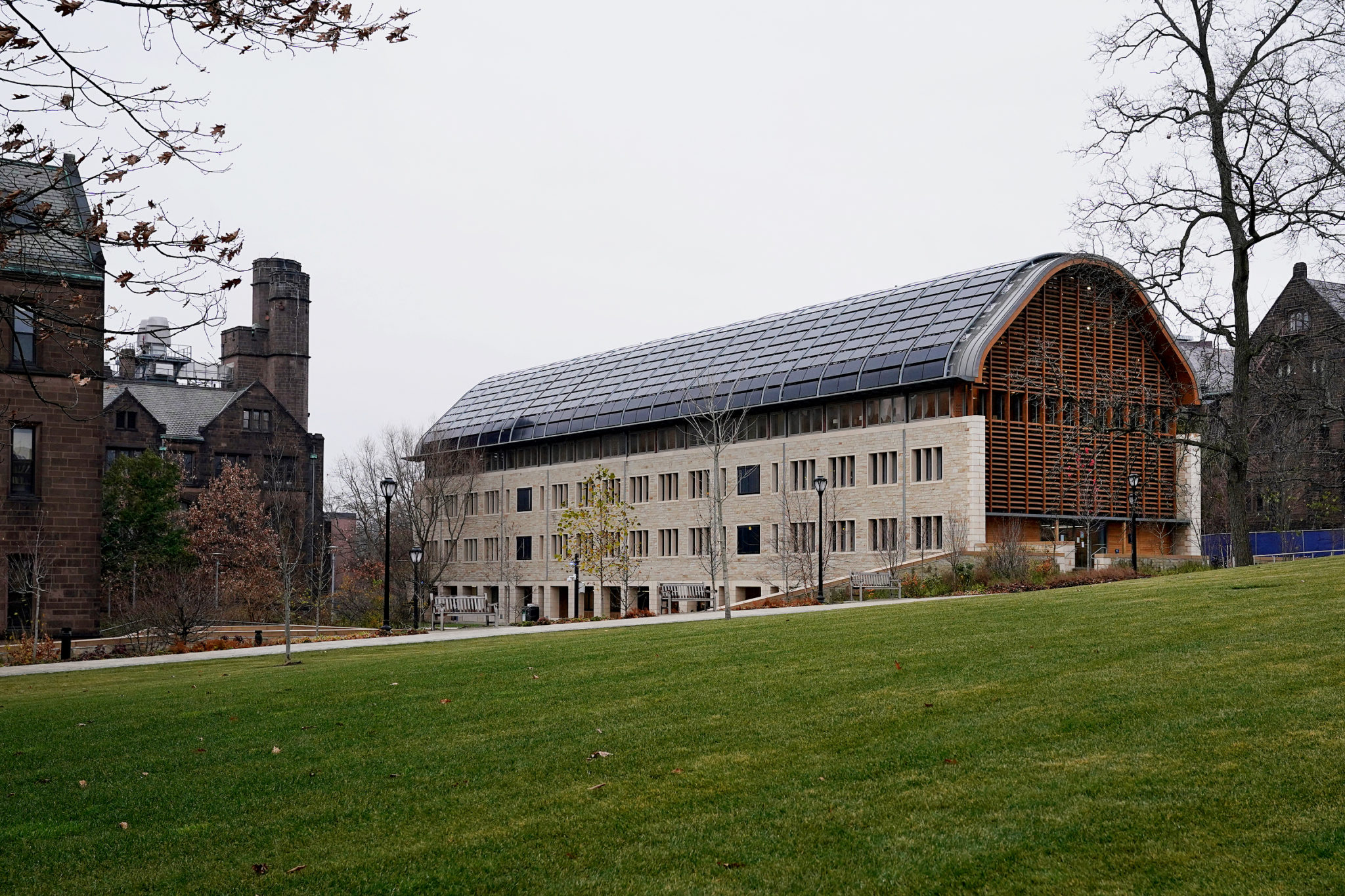Students and faculty at Yale School of the Environment create playbook for ecosystem restoration
A recent paper co-authored by YSE students and faculty details principles which can make ecosystem restoration projects more effective and equitable.

Tim Tai, Staff Photographer
A new article co-authored by students and faculty at the Yale School of the Environment outlines steps towards making environmental management more effective while also recognizing historically disenfranchised communities.
The team of Yale School of the Environment, or YSE, students and faculty examined the historical, social, political and economic aspects of environmental issues — in a field collectively known as political ecology — that are often left out of the conversations surrounding environmentalism. They released a list of ten principles based on the field, which they believe can be applied locally, nationally and globally to ensure efficacy and equity for current and future ecosystem restoration projects.
“Political ecology looks at environmental issues through a social-political lens,” Samara Brock ENV ’22, one of the paper’s co-authors, explained. “It sees environmental issues through their root causes, power dynamics and the social and political relationships involved.”
Traditionally, the field of environmental studies has had a rigid divide between the social sciences and natural sciences, according to Brock. Political ecology emerged in the 1990s as a response to the gap between disciplines and how they understood natural resources.
The co-authors come from a variety of disciplines and academic backgrounds, helping to provide perspectives from their respective fields. According to Manon Lefèvre, co-author and doctorate candidate at the Yale School of the Environment and Department of Anthropology, the variety of contributors proves that the divides in environmentalism can be crossed.
According to Eva Garen, one of the article’s co-authors and director of the Yale Environmental and Leadership Training Initiative, Lefèvre assembled the team last February at a conference for the International Society of Tropical Foresters, which is organized annually by students at YSE.
The importance of the social sciences to environmental studies is underscored in this paper, which suggests that much of current environmental policy has been ineffective and inequitable because it has not considered the broader context in which these issues are situated.
“There’s a long history of vast inequalities in power and knowledge in the field of environmental research, in which western — overwhelmingly white — researchers and policymakers have the say over how to manage landscapes all over the world, especially in places that are structurally disenfranchised,” said Lefèvre.
Environmental management policies have frequently displaced and ignored communities that are sustainably managing the lands they live on under the auspices of environmental protection, Garen said. This upends or demonizes local cultural practices, Garen added. The hierarchy of power which exists throughout much of the world has resulted in situations where the communities which live in managed landscapes have the least say over how that land is managed.
In the local “arena,” the team prescribed policy which privileges local knowledge and practices, includes participation of the most impacted groups and ensures social and environmental equity and justice.
At the national or state level, policies which align restorative practices with local needs and aspirations, encourage state policies to support restoration and empower representative local decision making were recommended.
In the global sphere, the authors endorsed policies that promote regenerative interventions, prioritize social and ecological benefits over financial returns, ensure fair funding and promote collaboration across country borders.
These principles come from a long tradition of literature within political ecology. There was existing work in the field written about forestry conservation and management, which the co-authors reviewed while working on the paper. The Political Ecology Playbook seeks to unite the decades of work in the field into something more accessible and broadly applicable across all levels of environmental policy.
“It is new to see [these principles] within the context of forest landscape restoration and really linking the local, national and international sectors together like this … [the paper] is trying to provide a playbook for people to broadly look at these principles and see how they relate and how to account for them in restoration processes,” said Garen.
The Yale School of the Environment is located at 195 Prospect St.







